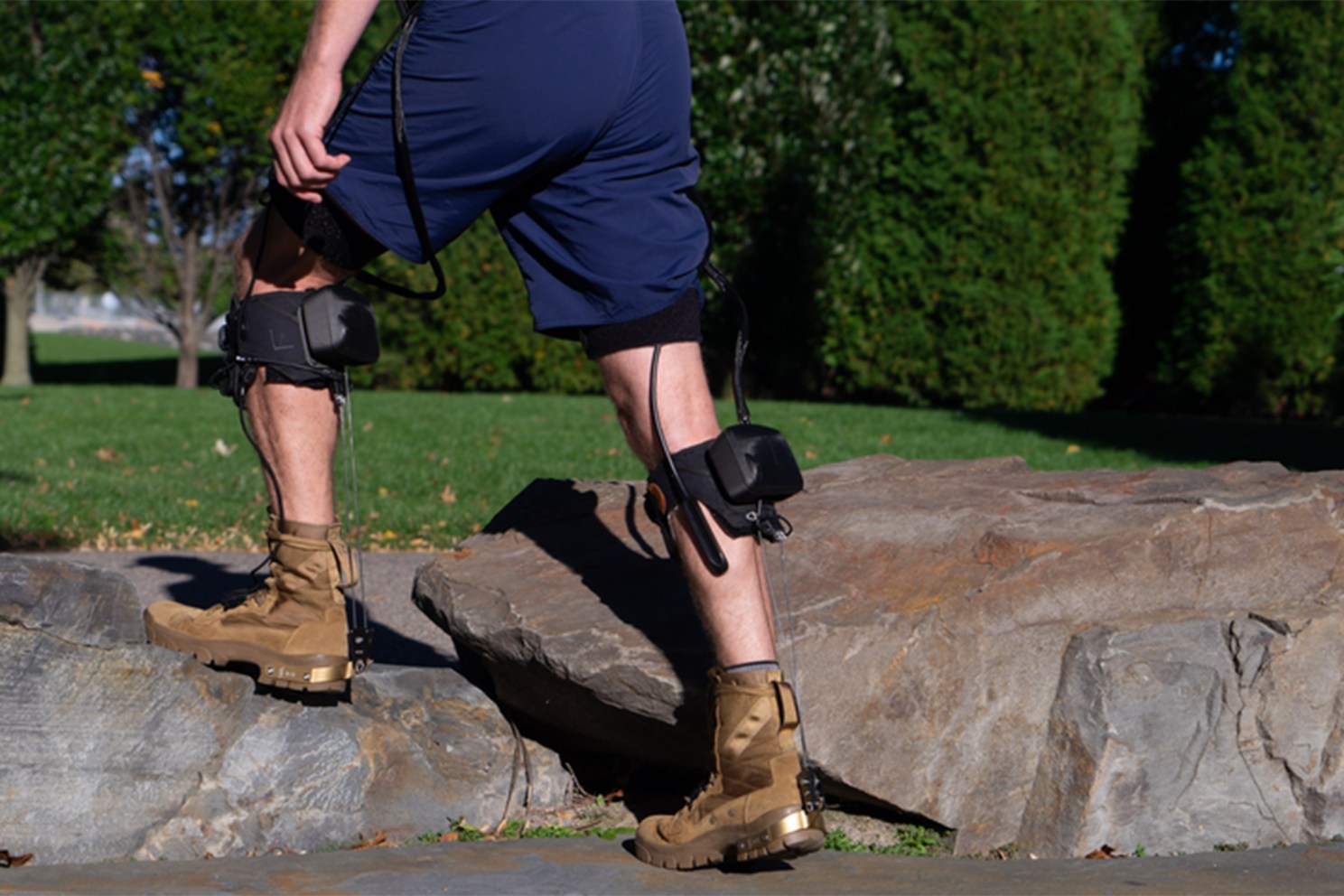Harvard and BU awarded $3M for robotics, wearable technology development

Researchers aim to improve the lives of people with neuro-motor impairments and to help individuals achieve ambitious fitness goals. Courtesy of SEAS
Harvard and Boston University have been awarded a new grant of $3 million from the State House to support the development of next-generation robotics and wearable technologies. Researchers aim to improve the lives of people with neuro-motor impairments and to help individuals achieve ambitious fitness goals, driving innovation in a new category of rehabilitation, diagnostic, and assistive devices that are more lightweight, affordable, and connected.
Led by Harvard John A. Paulson School of Engineering and Applied Sciences (SEAS), the project involves a collaboration with Boston University College of Health & Rehabilitation Sciences: Sargent College, as well as with industry partners that are poised to bring innovations to market. The first two industry partners are ReWalk Robotics, Inc. of Marlborough, which designs and develops powered solutions that provide gait training and mobility for lower limb disabilities; and Imago Rehab, of Arlington, Massachusetts, a startup founded by Harvard engineers in 2021 to improve recovery outcomes for stroke survivors through a combination of home-use wearable robotics and digital health. The new award was made by the Innovation Institute at the MassTech Collaborative from the commonwealth’s Collaborative Research and Development Matching Grant program that invests in critical research and development (R&D) infrastructure statewide.
“Massachusetts is a global leader in both technology and health care because of our support for important research, the ability to leverage our network of partnerships, and our constant focus on fostering innovation,” said Gov. Charlie Baker. “With these additional resources, we can advance the development of new assistive devices that will have applications for patients around the world.”
“Across the state, our administration has made key investments that boost research and development programs staffed by our top students and faculty researchers,” said Lt. Gov. Karyn Polito. “As one of our leading institutions, Harvard has a strong track record of commercializing their research, turning great ideas into new products for use around the world. Robotics and med devices are two areas where Massachusetts is a global leader, and this new investment will help keep us there.”
Combined with existing resources, this grant will support a $6 million effort to equip Harvard facilities with the infrastructure necessary to develop and evaluate wearable product prototypes. With support from Harvard’s Office of Technology Development and aligned industry partners, the initiative will help to push these prototypes into commercial products that can drive growth in the commonwealth’s world-class robotics, digital health, and apparel sectors. An emerging relationship with Bunker Hill Community College will help to grow the Massachusetts workforce in these fields with new work and training opportunities for students.
Activities will be centered at the Harvard Move Lab with guidance by faculty director Conor Walsh and executive director David Perry. The Harvard Move Lab is a newly launched initiative whose mission is to support advances in human performance enhancement with the collaborative space, funding, R&D infrastructure, and experience necessary to turn promising research into mature technologies. The initiative serves as a connector for groups across Harvard Schools, local institutions, and industry partners who share this mission.





